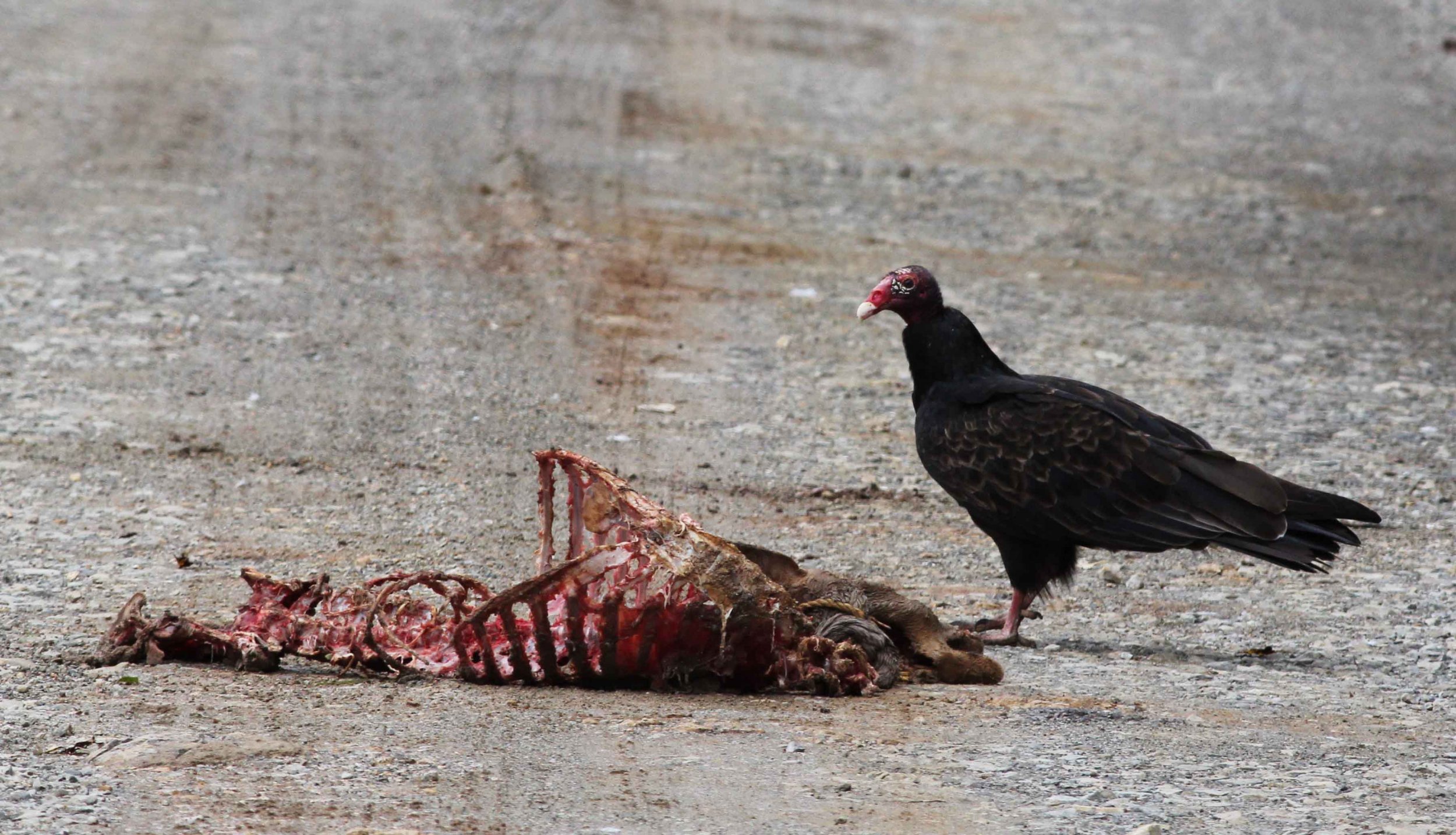
While humans carefully preserve and cook turkey for Thanksgiving, turkey vultures—and other scavenging raptors of their ilk—have slightly different preferences. They'll take just about any meat, as long as it has begun to rot.
The fetid flesh upon which vultures feast contains bacteria and toxins that would kill most large animals, including humans, says Gary Graves, an ornithologist at the Smithsonian Institution's National Museum of Natural History. They also regularly encounter and invariably consume some fecal matter in the process of dining.
"They come into contact with just about any pathogenic bacteria you can name," Graves tells Newsweek.
So the question is: How do they survive such a filthy lifestyle? Researchers now have some clues, as they have cataloged and identified the microbes that live on and within the bodies of two species of vultures. This is the first time that the entire microbiome of any type of bird has been sequenced at this level of detail, Graves says.
The scientists discovered that one of the two predominant types of bacteria that call the vulture gut home are a group called Clostridium. This genus contains "many bad actors," Graves says, including the microbes responsible for such human maladies as botulism, tetanus and gangrene.
In this case, though, it appears that vultures and these microbes have developed a symbiotic relationship "that enables them to extract energy from something that for a majority of vertebrates would be highly toxic," says Keith Bildstein, director of conservation science at Hawk Mountain, an organization for protecting birds of prey, who wasn't involved in the study.
The birds also likely kill a majority of the pathogenic bacteria with their extremely acidic stomach, Graves says.
In humans, the skin has less bacteria than the mouth, which in turn has fewer microbes than the intestines. But in vultures this pattern is flipped: The guts are home to a select and not particularly diverse group of microbes, while the skin contains more bacteria. The study, published today in the journal Nature Communications, found about seven times more bacterial diversity on the skin compared with the intestines.
Vulture necks are particularly rife with microbes, which they pick up from sticking their heads into dead animals orifices and the like, Graves says. But in examining "hundreds of vultures, I've never seen any sores or anything," he adds. "Their immune system must be like nothing we have ever seen."
In the study, scientists looked at the gut microbes of turkey vultures and black vultures, two species found in North America that have generally stable populations. The researchers, who (besides Graves) hail from the University of Copenhagen and the Technical University of Denmark, got the vulture carcasses from Nashville. The birds were killed by the Wildlife Services division of the U.S. Department of Agriculture, responding to citizen complaints, and weren't being used for any scientific purposes, Graves says.
The findings could help scientists who are trying to prevent vultures from going extinct in Asia and Africa, where their numbers have been in decline. Populations of vultures in India and elsewhere have plummeted in recent years due to the use of the drug diclofenac in cattle, which kills these birds when they eat dead cows.
In much of Africa, vultures are also in decline due to intentional poisoning of dead animals by herdsmen and poachers. Those who illegally go after rhino horns for medicinal purposes and elephant tusks for ivory are increasingly adding poison to carcasses to kill vultures, which hover over dead animals and can serve as a signal to rangers that poachers are afoot, Bildstein says.
"Understanding the basic biology of vultures is critical for giving conservation biologists the tools they need to conserve these birds," he says.
Uncommon Knowledge
Newsweek is committed to challenging conventional wisdom and finding connections in the search for common ground.
Newsweek is committed to challenging conventional wisdom and finding connections in the search for common ground.
About the writer
Douglas Main is a journalist who lives in New York City and whose writing has appeared in the New York ... Read more
To read how Newsweek uses AI as a newsroom tool, Click here.








